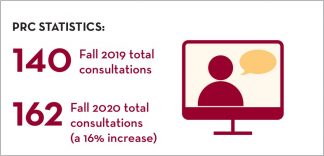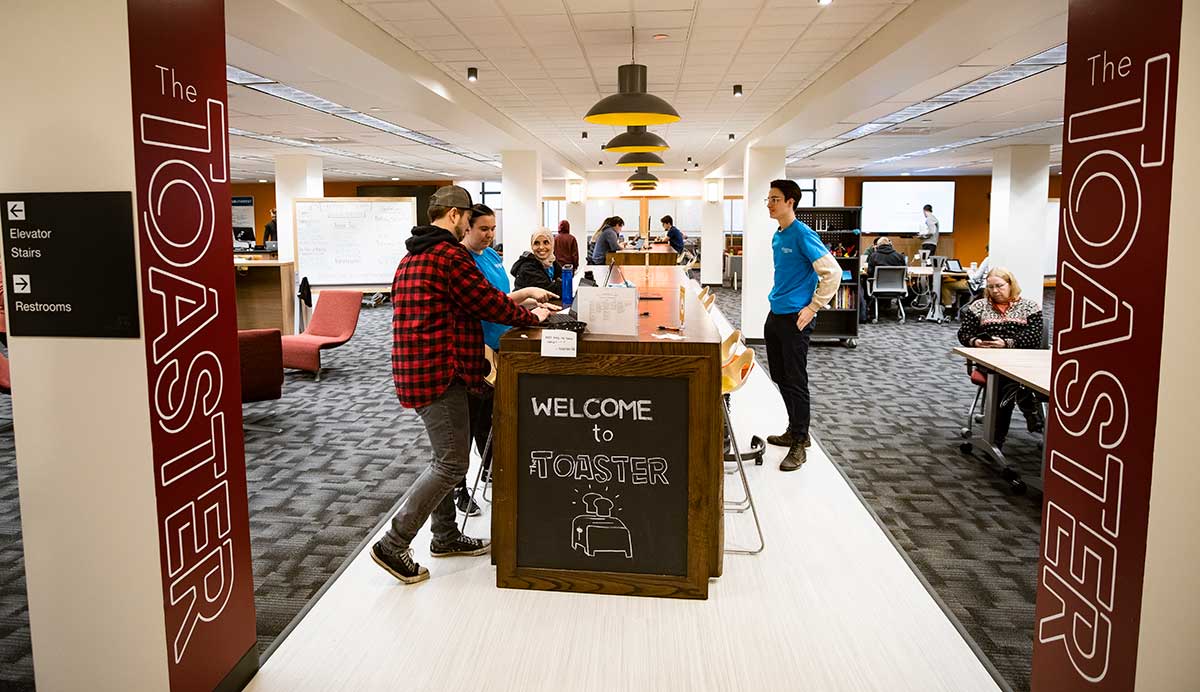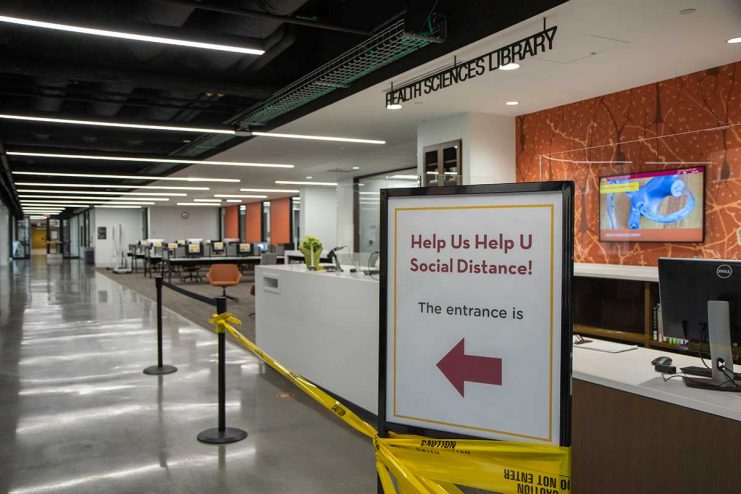Education
Student support
During the pandemic, the Peer Research Consultants, undergraduates trained to guide others in research, were much busier than usual providing online consultations.
Course integration
 Libraries resources were integrated into 2,954 Canvas courses in 2020 (spring, summer, and fall semesters), providing access to library resource guides and course content, including library licensed materials, freely available materials, open textbooks and open educational resources, materials provided through fair use, and copyrighted materials needing royalty payments. The Libraries’ 951 research and course guides had a total of 311,666 views in 2020.
Libraries resources were integrated into 2,954 Canvas courses in 2020 (spring, summer, and fall semesters), providing access to library resource guides and course content, including library licensed materials, freely available materials, open textbooks and open educational resources, materials provided through fair use, and copyrighted materials needing royalty payments. The Libraries’ 951 research and course guides had a total of 311,666 views in 2020.
Library tutorials — including “How to read and comprehend scientific research articles,” and “What is a library database and why should I use one” — were viewed nearly 140,000 times during spring, summer, and fall semesters.
Teaching
For spring and fall semesters in 2020, Libraries staff taught 429 course-integrated sessions, reaching 12,060 students.
The Toaster in Walter Library
A space designed to nurture innovation and entrepreneurship, the Toaster, had to close shortly after opening in spring 2020 due to COVID. Last fall, the Toaster doors were open but with restrictions on the number of people and the use of the BreakerSpace. Virtual office hours, peer consulting, workshops, and online resources were offered.
The Health Sciences Library and the Wangensteen Historical Library moved into the connected Health Sciences Education Center and Phillips-Wangensteen Building in July 2020. The two libraries foster interprofessional education through expertise, engagement, critical content, and leading-edge technologies to advance teaching, learning, and research, and prepare the next generation of health care providers.
Libraries collaboration
The Data Curation Network (DCN), led by the U of M Libraries, helps researchers preserve and share their research data in an open and ethical manner. The network includes 11 academic libraries and a non-profit digital repository. Since January 2019, the DCN has published 195 research datasets.
The U of M Libraries hosts the Big Ten Academic Alliance Geoportal, which brings together 13 institutions. The discovery portal facilitates access to the most current GIS information from these institutions and their states.
The B1G Collection Initiative will leverage collective resources across the Big Ten Academic Alliance libraries to manage their separate collections as a single collection. The University Libraries has begun working with their peer institutions to plan the systems, policies, and services needed to create an integrated user experience of the networked collections, from discovery to delivery. Individual libraries will continue to offer distinctive collections and services focused on local needs. The Libraries’ Values for collections statement supports this collaboration and has been endorsed by the Senate Library Committee.



